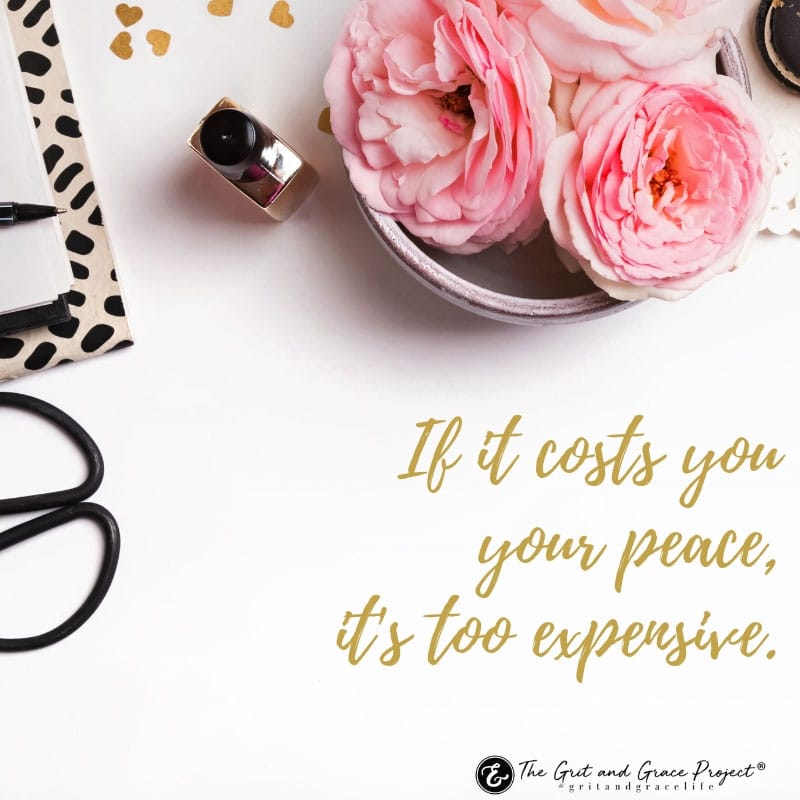Ask Dr. Zoe – How Do I Handle My Friend’s Anxiety?

‘Tired Friend’ Asked:
How do you deal with a friend with a mental illness? I have a friend with anxiety who really grinds my gears. At this point, I just want to walk away from the friendship. It just takes too much work. Too much biting of my tongue and I’m just not willing to commit to that. Not at this point in my life. Any help would be appreciated.
Dr. Zoe Answered:
Your feelings about your friend probably say less about her anxiety and more about the health of your relationship. If the relationship were strong, you would probably be asking a different question.
The biggest issue is that your relationship isn’t reciprocal. When the emotional burden is tipped more in one direction than the other, a relationship becomes vulnerable to fatigue, resentment, and ultimately disintegration.
Relationships are meant to be reciprocal.
If you are the one doing all the work, biting your tongue, and feeling responsible for her mental health, I’m not surprised that you are experiencing friendship burnout.
Anytime you find yourself in a caregiving situation, the best thing you can do is care for yourself first. Anxiety or not, it’s still important that you are getting what you need from the relationship. Relationships are not all about what we can get from them, of course, but a healthy friendship or romantic one must be reciprocal.
Although a quick google search will give you a ton of ideas about how to help your friend with her anxiety, my suggestion is to leave the mental health problems to professionals to deal with. You need to engage with your friend as a friend and not her therapist. It’s okay to let her know what role you want to play in this relationship.
Have the difficult conversation and set a boundary.
You can say something like, “I care about you and your mental health. I want you to be healthy, but I have noticed that your anxiety rubs off on me, so I’m not going to engage with you about it very much when we hang out together.” (Say this in your own words.)
This sets a clear boundary that you won’t be her therapist. It doesn’t mean that you are going to completely ignore her anxiety. Acknowledge it, encourage her to get help or utilize the tools she’s learning, but you can’t allow it to be the center of your relationship.
Believe it or not, people with anxiety usually do pretty well with boundaries; it’s ambiguity that sends them reeling. Setting a boundary also teaches her that she has to learn to take care of her own health. Setting a boundary with love lets her know that you still accept her, anxiety and all.
Ultimately you do still need to decide if the friendship is worth the investment. If it isn’t, it’s okay to walk away. You are actually doing her a bigger favor by walking away than you would if you stayed out of obligation to her mental health.
Define the relationship in a healthy way.
I am not a big proponent of burning bridges with relationships in your life. It’s very rare that someone actually qualifies to be completely cut off from your life. But over the course of your life, as you change, your capacity for certain relationships may change as well.

Instead of ending the relationship completely, learn to delegate your friendships to appropriate circles of intimacy in your life. You can slowly reduce the intimacy and frequency of your exchanges until the level feels doable for you without cutting her off completely.
This simply means that you become less available to her. You may find that creating healthy boundaries reduces your need to delegate her to an outer circle, though. Either way, it’s apparent that change needs to happen. The sooner you address this situation in your life, the better.
It can be tough to maintain a healthy friendship with someone who struggles with anxiety. It doesn’t make you selfish or bad if you have to bow out to protect your own mental health. First, create healthy boundaries. Second, define the relationship for yourself and move forward. You’ve got this! It just takes a little grit and grace!
—
Looking for more encouragement through difficult friendships? Start here:
When Bearing Their Burden Breaks You
Establishing Healthy Boundaries in the Grit and Grace Life
Why You Should Just Have That Hard Conversation (And How to Do It)
How to Use The 5 Love Languages for Strong Friendships
Ask Dr. Zoe – When Is a Friendship Toxic?
Don’t miss these popular articles:
Don’t Let Your Failures Become Flounders
When to Remember and When to Forget (in Your Faith)
Simple Guidelines for Traveling With Kids and How to Enjoy It
Dear SAHM: I See You and Want You to Know These 8 Things
A Woman of Grit Without a Hard Heart
#gritandgracelife
You’ll love this podcast episode from This Grit and Grace Life: When Is a Friendship Unhealthy and What Do You Do? – 081!
